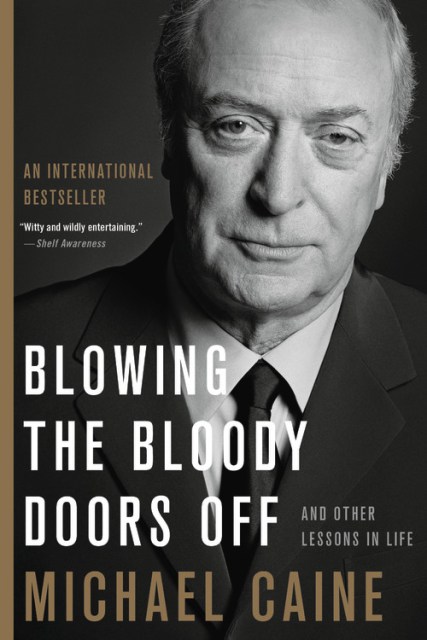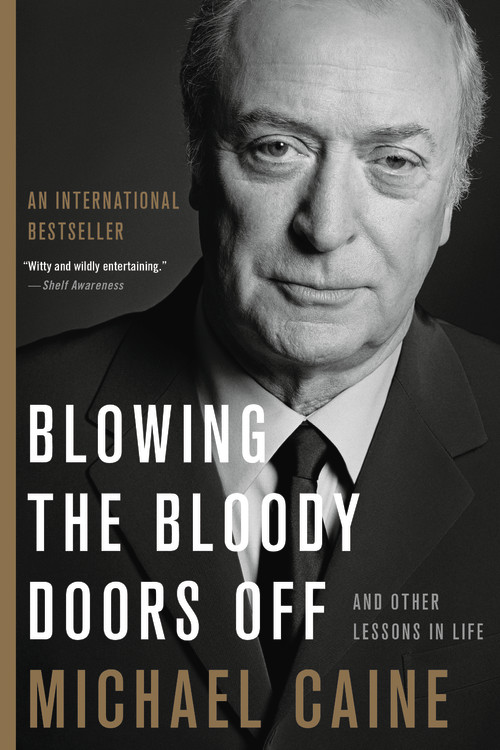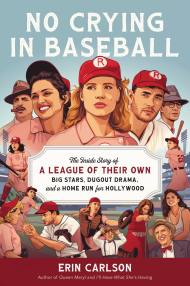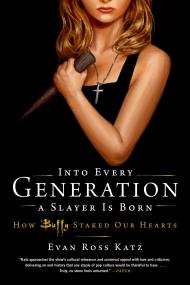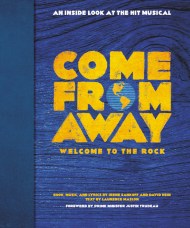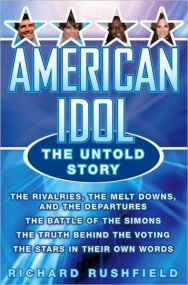By clicking “Accept,” you agree to the use of cookies and similar technologies on your device as set forth in our Cookie Policy and our Privacy Policy. Please note that certain cookies are essential for this website to function properly and do not require user consent to be deployed.
Blowing the Bloody Doors Off
And Other Lessons in Life
Contributors
Formats and Prices
- On Sale
- Oct 22, 2019
- Page Count
- 288 pages
- Publisher
- Grand Central Publishing
- ISBN-13
- 9780316451185
Price
$16.99Price
$22.99 CADFormat
Format:
- Trade Paperback $16.99 $22.99 CAD
- ebook $11.99 $15.99 CAD
- Hardcover (Large Print) $39.00 $49.00 CAD
- Audiobook Download (Unabridged) $24.99
- Audiobook CD (Unabridged) $40.00 $52.00 CAD
This item is a preorder. Your payment method will be charged immediately, and the product is expected to ship on or around October 22, 2019. This date is subject to change due to shipping delays beyond our control.
Buy from Other Retailers:
One of our best-loved actors, Michael Caine has starred in over 100 films in his six-decade career, spanning classic movies like Alfie, Zulu, and The Italian Job (the inspiration for the book title) to playing Alfred opposite Christian Bale’s Batman in Christopher Nolan’s blockbuster Dark Knight trilogy. Caine has excelled in every kind of role–with a skill that’s made it look easy.
Caine knows what success takes. He’s made it to the pinnacle of his profession from humble origins. But as he says, “Small parts can lead to big things. And if you keep doing things right, the stars will align when you least expect it.” Still working and more beloved than ever, Caine now shares everything he’s learned-and “his fans will be rewarded, as will anyone seeking an enjoyable, inspirational read” (Library Journal).
-
"Charming, advice-filled look at his extraordinary career."People
-
"Caine the raconteur provides exactly what an admiring reader would want from the cockney-born Hollywood vet.... The great stuff is when he recalls his days in swinging 1960s England."New York Times Book Review
-
"Caine melds candid anecdotes and a master class on acting into an upbeat, unpretentious, and star-studded memoir.... Warm recollections and practical advice from an acclaimed star."Kirkus Reviews
-
"Caine reflects on an exceptional life on and off stage and shares pertinent advice and poignant observations in a dishy and anecdotal rumination. Caine's pithy but passionate counsel can be applied to nearly any situation. Gracious, generous, and humble, this consummate professional is a generous advocate for creating a fulfilling and contented life."Booklist
-
"Funny, warm, down-to-earth--will captivate fans and casual readers alike."Publishers Weekly
-
"With exceptional wit and flair, Academy Award winner Caine recounts his fascinating personal and professional journey. Engrossing anecdotes.... Caine speaks of his failures and successes with humility and humor, perceptively explaining that the lessons he learned apply both to aspiring actors and the general public-how to be fully prepared, make the most of every opportunity, achieve balance, deal with aging, and find the good in any experience. This well-written narrative shines with positive energy and provides a fine overview of the actor's life and the screen and stage.... Caine's is a life well lived and well told. His fans will be rewarded, as will anyone seeking an enjoyable, inspirational read."Library Journal (starred review)
-
"Thoroughly engaging."Sunday Express (UK)
-
"A down-to-earth, kindhearted ramble from your nice British great-uncle, who's led a fascinating and glamorous life but never forgot his humble roots. [...] full of irresistibly tossed-off moments involving the likes of Cary Grant, Quincy Jones, Tom Cruise, Jack Nicholson, Bette Davis, and Stephen Hawking."Seattle Times
-
"Witty and wildly entertaining.... Caine offers star-studded anecdotes about the realities of being a working actor and life on and off the sets.... This solidly entertaining memoir doesn't have a single dull page."Shelf Awareness
-
"A chatty and engaging read."Sunday Times, Books of the Year
-
"A bright, breezy, and entertaining read."Daily Express
-
"National treasure Michael Caine shares the wisdom, insight and skills life has taught him, all with his fabulous storytelling."Prima
Newsletter Signup
By clicking ‘Sign Up,’ I acknowledge that I have read and agree to Hachette Book Group’s Privacy Policy and Terms of Use
